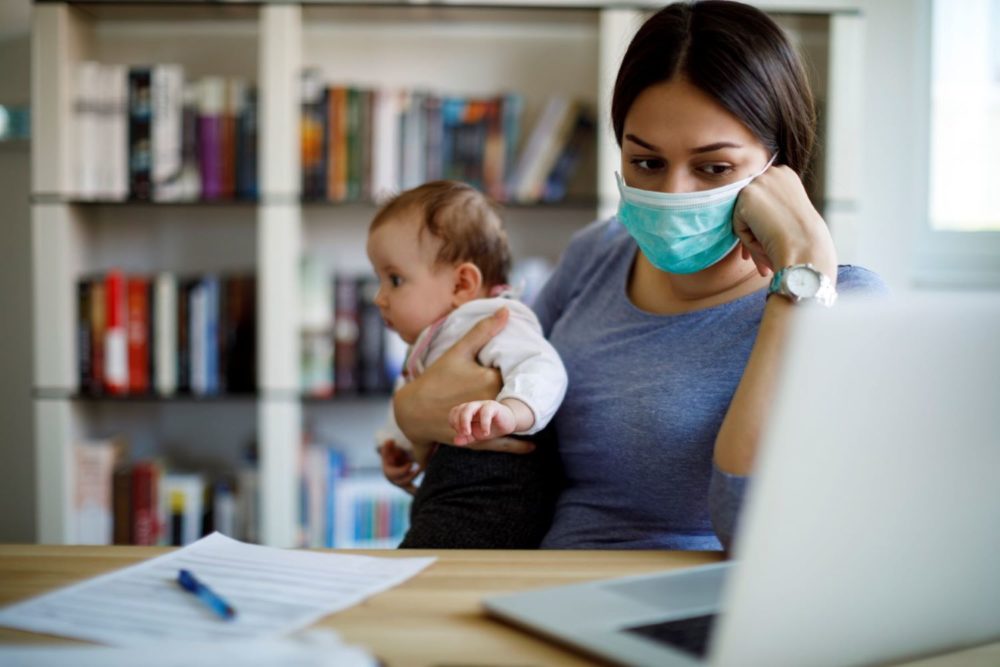
Coronavirus Depression: Why is it Happening and What Should You Do?
Since the start of the pandemic, more and more people have been experiencing coronavirus depression. What is it exactly? Coronavirus depression is the increase in depression that many are experiencing due to the reality of the pandemic. With regulations like quarantines and social distancing in place to slow the spread of the virus, normal life has changed for many. Symptoms of depression during COVID-19 might include fatigue, the inability to focus, unusual feelings of sadness or irritability, lack of interest in things that used to bring you joy, and isolation, among others.
Why is Coronavirus Depression Happening?
Increased Isolation
With many jobs moving to a work-from-home format and social distancing regulations in place, many are experiencing increased isolation. This can lead to feelings of loneliness and coronavirus depression, especially for those who depend wholly on people they don’t live with for social interaction.
Close Proximity in Unhealthy Relationships
Those who live with someone who negatively impacts their emotional or physical health are more likely to experience coronavirus depression. This is especially true for those feeling trapped in physically or emotionally abusive relationships. The constant close proximity with an abuser understandably has a harmful effect on a person’s mental health.
Increased Stress
High levels of stress are being felt across all communities as COVID-19 has an impact on our lives. If the pandemic has had an impact on your job, shaken your financial security, complicated your relationships, or negatively affected any other aspect of your life, you’re likely experiencing increased levels of stress. This stress can lead to coronavirus depression.
Anxiety About the Future
With so much still unknown about COVID-19 or when the pandemic will end, many are feeling increased anxiety about the future. Coronavirus depression may be exacerbated by the anxiety you are feeling about the unknown or about your risk for getting the virus.
Increase in Unhealthy Habits
Spending more time at home and less time out and about may lead you to engage in an increase in unhealthy habits. Poor eating, increased drinking, drug use, lack of exercise, and other habits are all too easy to slip into during this time. Unfortunately, these habits can lead to depression quickly.
What Should You Do if You Think You Are Experiencing Coronavirus Depression?
Seek Help
If you believe you may be experiencing depression during COVID-19, consider seeking the help of a mental health professional. A therapist can help you navigate your depression and look for healthy solutions so you can start feeling better. They can work with you to figure out what in your life might be contributing to your depression and how you can overcome it. Ultimately, a therapist is someone in your corner that is available for you to talk to, someone who will advocate for your mental well-being.
Keep Your Mind and Body Active
Finding ways to engage your brain and body during COVID-19 might involve some creative problem-solving. If you cannot go to the gym or interact with others in different settings due to the virus, there are still ways to be active. Try taking this time as an opportunity to engage in hobbies or interests, work out at home, or explore the outdoors. Read a book. Analyze a movie. Play a challenging video game. Mental and physical activity can help decrease your likelihood of coronavirus depression.
Find Safe Ways to Be Social
While you may not be able to interact with your friends and families in traditional social settings or large groups, there are still safe ways to be social. Interpersonal connection is vital to mental health. Today’s technology makes it easy to talk to loved ones over video or phone or even play games remotely. Depending on your local guidelines and restrictions, you might be able to get together with friends in person with social distancing precautions in place (such as meeting outside, sitting 6′ or more apart, wearing masks, and so forth). Finding safe ways to fulfill your social needs might help you overcome coronavirus depression.
If you think you are experiencing symptoms of coronavirus depression, you should seek the attention of a mental health professional.To learn more about therapists available in your area, click here.
© Copyright 2020 GoodTherapy.org. All rights reserved. Permission to publish granted by GoodTherapy
